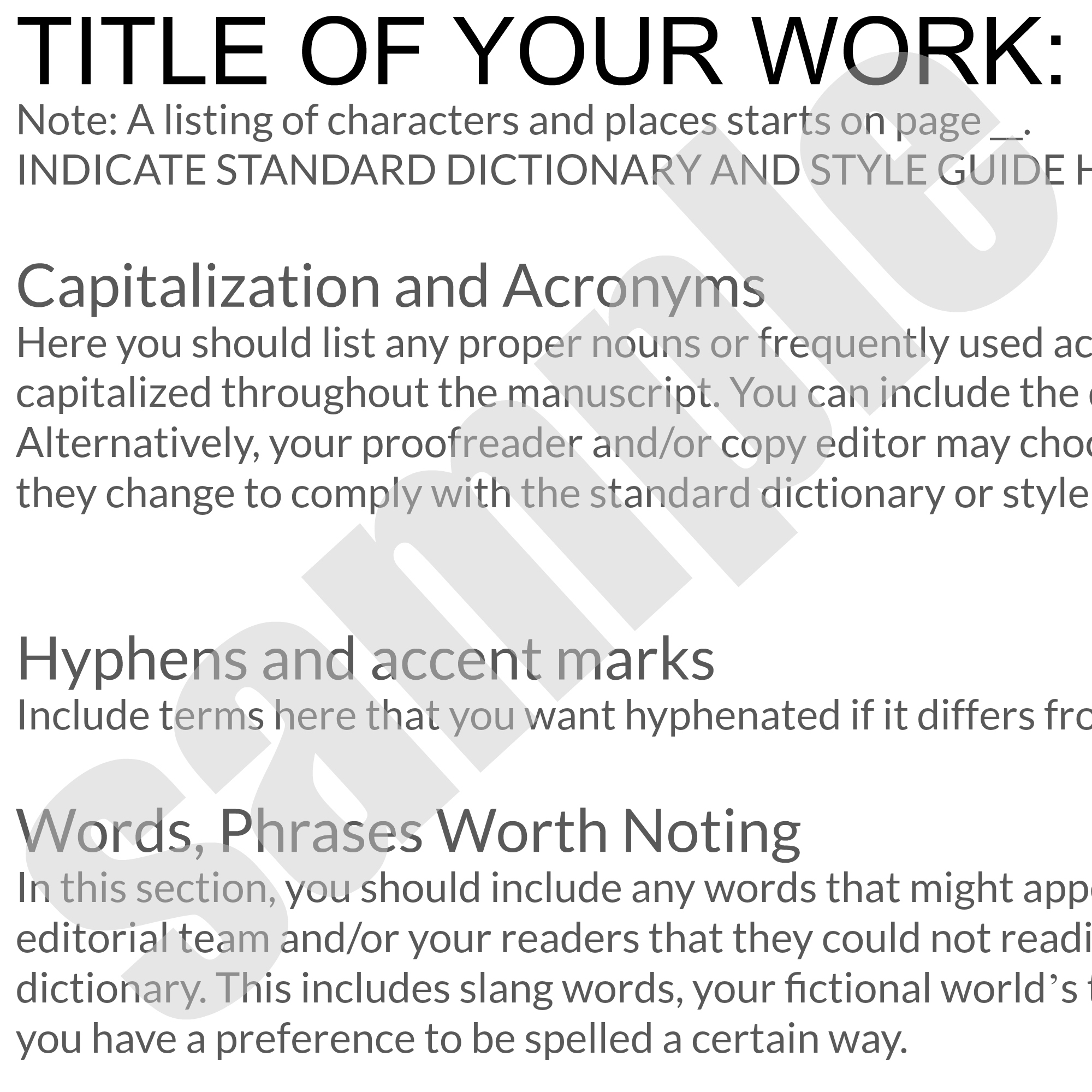
 No matter what type of writing you do, fiction or non-fiction, a style sheet can be a vital tool for maintaining consistency in your narrative. If you write fantasy fiction or sci-fi, though, a style sheet is an absolutely vital component of your manuscript.
No matter what type of writing you do, fiction or non-fiction, a style sheet can be a vital tool for maintaining consistency in your narrative. If you write fantasy fiction or sci-fi, though, a style sheet is an absolutely vital component of your manuscript.
What is a style sheet?
A style sheet is an organized list of terms that you regularly use in your novel (or non-fiction manuscript) that are either not found in the dictionary at all, or found in a dictionary other than the standard one your editor refers to. A style sheet also contains information on specific formatting preferences that you have that differ from the style manual that your editor (or proofreader, or formatter) usually refers to. In fantasy and sci-fi, the castle and creature names, and the planet and language names you create would all go into this style sheet.
Why use a style sheet?
Let’s talk about fiction first. Imagine yourself writing. You’re in the zone, creating, painting a picture with your words. Each spelling choice, each adjective, the names of birds and flowers your characters encounter, must be utterly intentional. They are your tools to show the reader what she needs to know about the world your characters inhabit. You need to make sure your terms, usage, and naming conventions are consistent throughout, or risk causing confusion. And you should be able to defend the choices you make, even if, when it comes down to it, the way you spell a word or a name is simply because you want to spell it that way. The best way to do that is to make a record of your intent, and a style sheet is just that, a record of intent and a way to keep consistent with your choices throughout.
Personal example time. I have been revising my own novel for publication later this year. As I am going through the manuscript I find notes I’ve left to myself to follow up on later. I left multiple notes asking myself what the name of the fictional town was that my characters lived in because in the first draft I hadn’t named it! Also there are specific Gaelic words that I use that I can never remember how to spell. A style sheet is a terrific way to keep track of all of these kinds of things, so as I’m revising I’ve started a style sheet note in Scrivener to help me keep track of everything.
Style Sheets for Non-fiction
In non-fiction, a well organized style sheet is your editor’s best friend. You won’t always be lucky enough to find an editor who is also a subject matter expert in your specific field. Some editors are generally experienced with the subjects they edit, and some are even very specifically experienced, but unless you know who you’ll be working with already, and know how intimately they understand what you’re writing about, your best bet is to make detailed notes to ensure that they don’t edit away the meaning of your work in an attempt to make it fit a specific set of standards.
When do you need to make a style sheet?
You can wait until the editing process and ask your editor to compile a style sheet for you. Or you can start your style sheet right now and save you (and your editor) a lot of trouble later. Some people like to wait until their messy draft is complete and they’re on to the revision stage to start compiling a style sheet. This is perfectly acceptable, as you may find that you change your mind about certain terms, or even character names, while revising your manuscript draft.
Sign up here to download your own style sheet template and get started on yours today!
[yikes-mailchimp form=”5″ submit=”Submit”]




